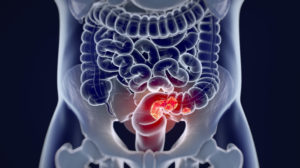Keep reading to learn all about the advantages of epigenetics in aging and healthspan optimization.
RELATED: Epigenetic Clock: Can Our Body’s Biological Age Be Reversed?
In this Article:
- Redefines Age
- Expands Our Understanding of Diseases
- Improves Diagnostic Process
- Finds New Ways to Extend Healthspan
- Returns Human Agency: DNA is Not Destiny
5 Aging and Longevity Advantages of Epigenetics
What is epigenetics? It’s a subfield of genetics that looks into the epigenome’s impact on human function and overall development. The epigenome refers to a variety of mechanisms that can change DNA expression without changing the DNA sequence itself.
Redefines Age
One of the advantages we can gain from the field of epigenetics is a more precise measurement of age. Usually, when you ask people how old they are, they’ll give you their chronological or birthday age.
Through the field of epigenetics, scientists and doctors now have the means to calculate an individual’s biological age.
What is the biological age? Doctors assess an individual’s biological age by measuring their physical and mental functions.
Biological age gives doctors a clearer idea of how well your body is functioning, so many of them consider it to be your real age. Chronological aging is inevitable, but a variety of factors contribute to an individual’s biological age.
Individuals with the same chronological age may have different biological ages. For example, someone diagnosed with chronic illness might be biologically older than someone who isn’t sick.
So depending on how healthy you are, your biological age can be higher or lower than your chronological age. Knowing your biological age is an essential step towards optimizing your health. It’ll clue you in on the things you need to do to maintain your healthspan.
Expands Our Understanding of Diseases

Age is a primary risk factor for a variety of diseases and even death. Traditionally, doctors and scientists characterize diseases by their observable symptoms.
One of the most significant contributions of epigenetics is that it expands your understanding of diseases. Epigenetics researchers learned that changes or impairments in epigenetic mechanisms could cause changes in gene expression.
Sometimes, these gene expression changes contribute to the development of age-related diseases such as cardiovascular disease and certain types of cancer. More importantly, these changes can happen before individuals begin to experience any symptoms.
Understanding how diseases begin at the cellular level gives scientists and doctors a better chance of diagnosing and treating them.
Improves Diagnostic Process

In most diseases, early diagnosis provides individuals with a better prognosis. Most doctors agree that a timely diagnosis gives patients a better opportunity for positive health outcomes.
Most general practitioners rely on the presence of disease symptoms before the diagnostic process begins. It is triggered by a health problem that already exists.
The advances in the field of epigenetics give doctors tools to diagnose patients even before patients become symptomatic. Using artificial intelligence and machine learning technology, epigenetic researchers are able to identify disease biomarkers.
In fact, some of these biomarkers are approved by the FDA and are already being used in diagnostic kits. For example, researchers discovered the SEPT9 biomarker for colorectal cancer. This helps doctors diagnose colorectal with just a blood sample.
RELATED: The Power of Epigenetics: Slow Aging And Feel Younger With a Simple Test
Finds New Ways to Extend Healthspan
Epigenetic researchers are finding ways to reverse biological age at the cellular level. Several studies show that it’s possible to reverse potentially harmful epigenetic changes and extend the healthspan of animals.
In one research lab alone, a team of researchers is figuring out how to reprogram cells. They want to be able to revert them to a more optimal (and younger) state.
The same lab also has a group of researchers focusing on the reversal of aging symptoms and nerve regeneration. They want to develop drugs that can help slow down the aging process.
There are exciting new findings of a molecule called nicotinamide adenine dinucleotide (NAD+). Studies show that NAD+ levels decline with age and may play a vital role in DNA repair.
Various animal studies show that NAD+ supplements help extend lifespan. On top of that, they also show that NAD+ also offers other aging benefits like:
- Improving mitochondria function
- Reversing vascular dysfunction
- Enhancing muscle regeneration
- Improving glucose metabolism
Epigenetic researchers are working hard so they can apply these findings in studies with human subjects.
Returns Human Agency: DNA is Not Destiny
An important takeaway from the field of epigenetics is that one’s DNA doesn’t have to determine one’s destiny. There’s very little you can do to change the DNA you were born with, but epigenetics teaches us that we have some control over our epigenome.
The following lifestyle factors can have an impact on your epigenome:
- Nutrition
- Alcohol consumption
- Smoking
- Level of physical activity
On top of that, the following environmental factors may also affect your epigenome:
- Long-term exposure to pollutants
- Exposure to toxins and certain chemicals
Some studies also show that certain psychosocial factors, like chronic exposure to stress, may have a negative impact on the epigenome.
So epigenetics tells us that we aren’t at the mercy of our genes. Studies show that making positive lifestyle and environmental changes may help mitigate genetic risks.
Epigenetics is changing the way we understand aging, disease, and health. It has also paved the way for medical innovations that allow doctors to optimize your healthspan further.
What excites you most about the field of epigenetics? Please share your thoughts with us in the comments section below.
Up Next:





